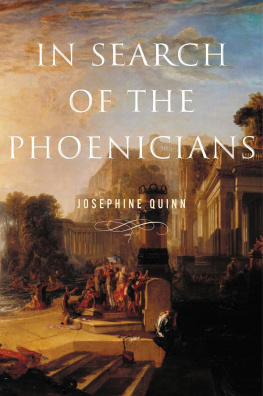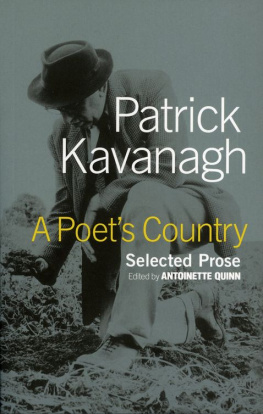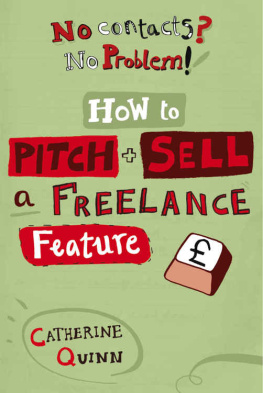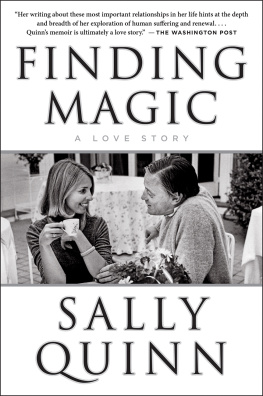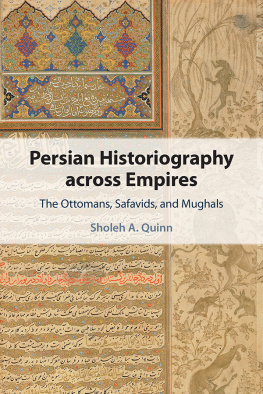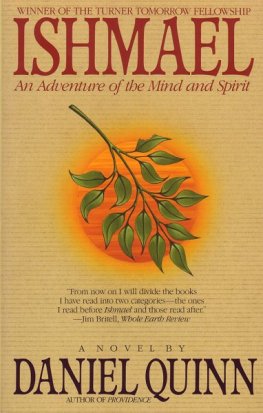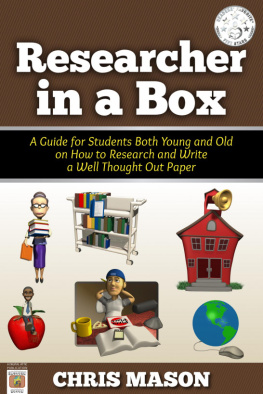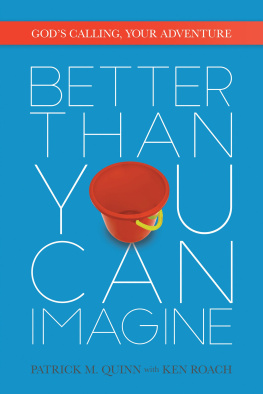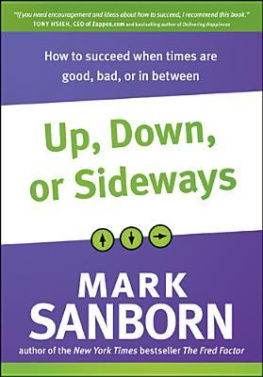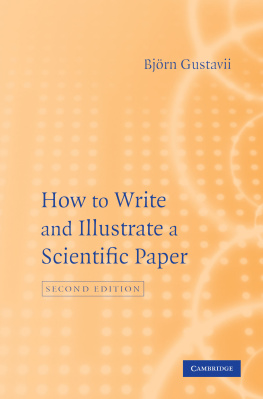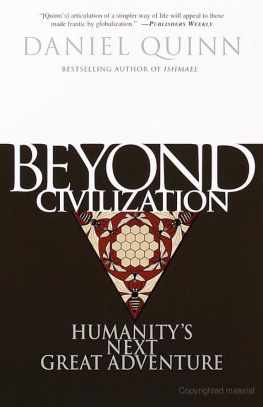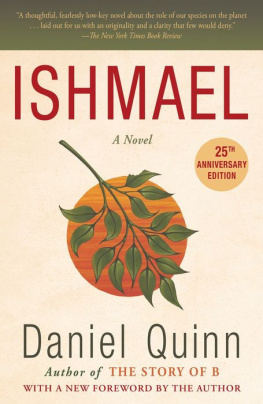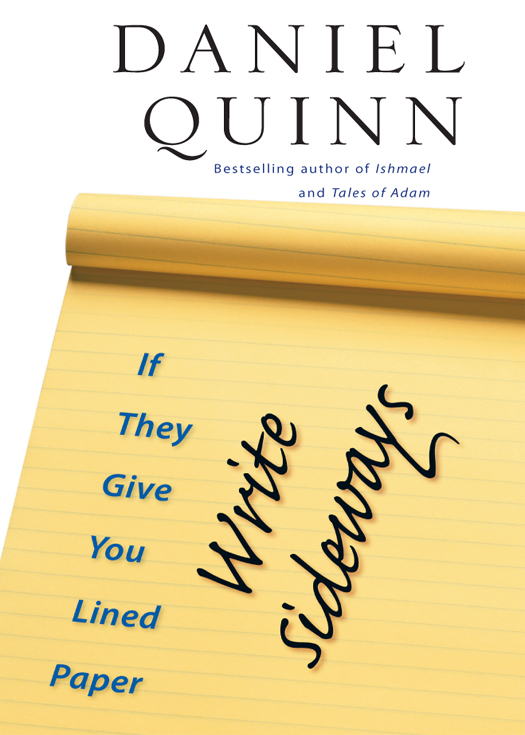Also by Daniel Quinn
Ishmael
Providence
The Story of a Fifty-Year Vision Quest
The Story of B
My Ishmael
Beyond Civilization
Humanitys Next Great Adventure
After Dachau
The Man Who Grew Young
The Holy
Tales of Adam
Work, Work, Work
Copyright 2007 By Daniel Quinn
ALL RIGHTS RESERVED
For information about permission to reproduce selections from this book, write to:
Steerforth Press L.L.C., 45 Lyme Road, Suite 208 Hanover, New Hampshire 03755
L IBRARY OF C ONGRESS C ATALOGING-IN- P UBLICATION D ATA
Quinn, Daniel.
If they give you lined paper, write sideways / Daniel Quinn. 1st ed.
p. cm.
eISBN: 978-1-58642-192-2
1. Ethnopsychology. 2. Cognition and culture. I. Title.
GN502.Q85 2007
153dc22
2006033169
v3.1
There is always a brave new world, said Poirot, but only, you know, for very special people. The lucky ones. The ones who carry the making of that world within themselves.
AGATHA CHRISTIE
Contents
Preface
I N OCTOBER 2005 I received a letter from a reader who was going to be in Houston my home over the Thanksgiving weekend; she wondered if she might spend some time with me to nail down the ideas she had explored in my books. I agreed, with the understanding that I had a purpose of my own: I wanted to use our conversation, taped and edited, as the basis for a new book I had in mind.
At her request I have replaced her name with another, of her choosing. What follows is a lightly edited transcript of our dialogue.
Although references are made herein to the fact that Ive written other books, the reading of these other books is not in any way a prerequisite to reading this one. To put the matter a different way, in writing this book, I have not assumed that the reader will be familiar with any of the ideas put forward in earlier works.
Thursday: Morning
Elaine [after an exchange of the usual civilities]. As you can imagine, Im very curious to know about the book youre working on.
Daniel. It would be nearer the truth to describe it as a book Ive been struggling with on and off for the past five years at least. Ill try to explain When I finished Ishmael, I imagined that Id done what I set out to do a dozen years before. I thought that this was it and that my work was done. A very naive notion.
Elaine. Why naive?
Daniel. Because no one with anything important to say has ever managed to encompass the whole of it in one book. What I learned from writing Ishmael was how far short Id fallen. This is what the thousands of letters I received told me. Readers loved the book but came away from it with serious misunderstandings of what I was saying. I thought I could correct those misunderstandings with a second book, The Story of B. From the reaction to that book, I saw that a third was needed. That was My Ishmael: A Sequel. What I then saw was that a fourth was needed in order to knit all my ideas together in a very simple, straightforward way, and this was Beyond Civilization.
Elaine. Uh-huh.
Daniel. When Beyond Civilization was still in manuscript form, I agreed to meet with a small group of readers who, like you, asked for an opportunity to get together with me to nail down their understanding of what I was saying. I agreed to give them a long weekend, but they had to arrive having read Beyond Civilization. When they arrived, however, it was soon clear that Beyond Civilization had answered very nearly all the questions theyd wanted to ask me. The seminar was over after about two hours, and we had to spend the rest of the weekend just socializing The point Im making here is that, with this book, I largely answered the multitude of questions that readers had been asking me ever since Ishmael appeared.
Elaine. Yes, I can see that. Though I think your essay The New Renaissance was what really did it for me.
Daniel. Yes. For anyone seeking a concise expression of my basic message, The New Renaissance was it. I felt Id said everything I had to say. But one question remained. This was a question that had been there from the beginning, but for many years I tended to dismiss it.
Elaine. What question was that?
Daniel. How do you do what you do?
Elaine. You say you tended to dismiss it ?
Daniel. I dismissed it because I thought the answer was obvious: Anyone whod worked at it as hard and as long as I had could have done the same.
Elaine. But you changed your mind.
Daniel. Yes, reluctantly. Reluctantly because Id never wanted to put myself forward as someone special or extraordinary.
Elaine. What changed your mind?
Daniel. Experience. Ill give you an example. In the summer of 1998 I tried an experiment. So many people had asked for an opportunity to study with me that I decided to run a nightly summerlong seminar that anyone willing to travel to Houston could attend for as long as they wanted. The attendance naturally fluctuated. During one week, when one group departed and another was expected, a single member of the seminar was stranded by himself, two thousand miles from home, and I felt obliged to look after him. We spent a lot of time just getting to know each other.
At the same time, I felt he should be getting something useful from the experience. He had read all my books many times, with great care and dedication, but still wanted to know if he really had got what I was saying to the extent that he thought he had. To find out, I culled about a hundred of the more interesting questions that had collected on my Web site over the years and let him try to answer them, one by one. We were both astonished by the results of this test. To the vast majority of questions he had no answer at all. He did attempt a few answers, but when these were compared with my own, it was obvious that he and I were not at all on the same page. In other words, what the experiment proved was that, while he knew the answers to questions raised in my books, he couldnt generate new answers answers that were nowhere to be found in my books.
Elaine. Why was this, do you think?
Daniel. Well come to that Meanwhile, heres another example. A few years ago a certain nonprofit group, impressed with my work, invited me to sit in on a planning meeting for an enterprise they were undertaking. I sat and listened as the planning team brainstormed their ideas for several hours. Finally, exhausted, one of them turned to me and said, Well, Daniel, youve been awfully quiet. Whats your take on all this?
I explained that I wasnt entirely sure of my reaction yet and wanted to let my thoughts settle a bit before speaking.
Just your gut reaction, they insisted.
Knowing I needed time to formulate my reaction in measured and diplomatic terms, I asked them not to pressure me to speak at that point, but they eventually overrode all my excuses, assuring me that any contribution from me would be welcome.


